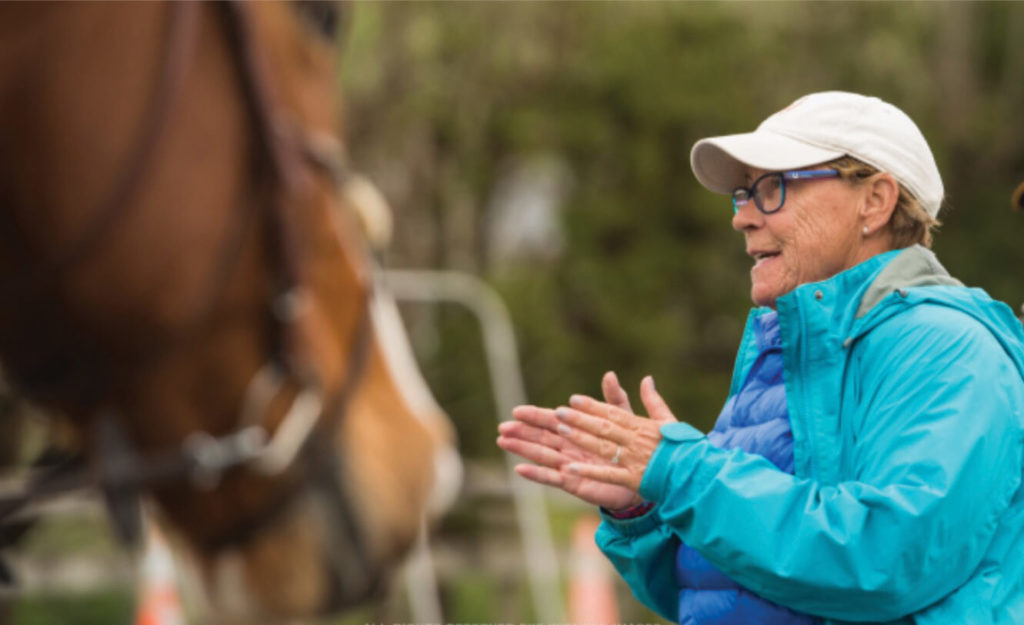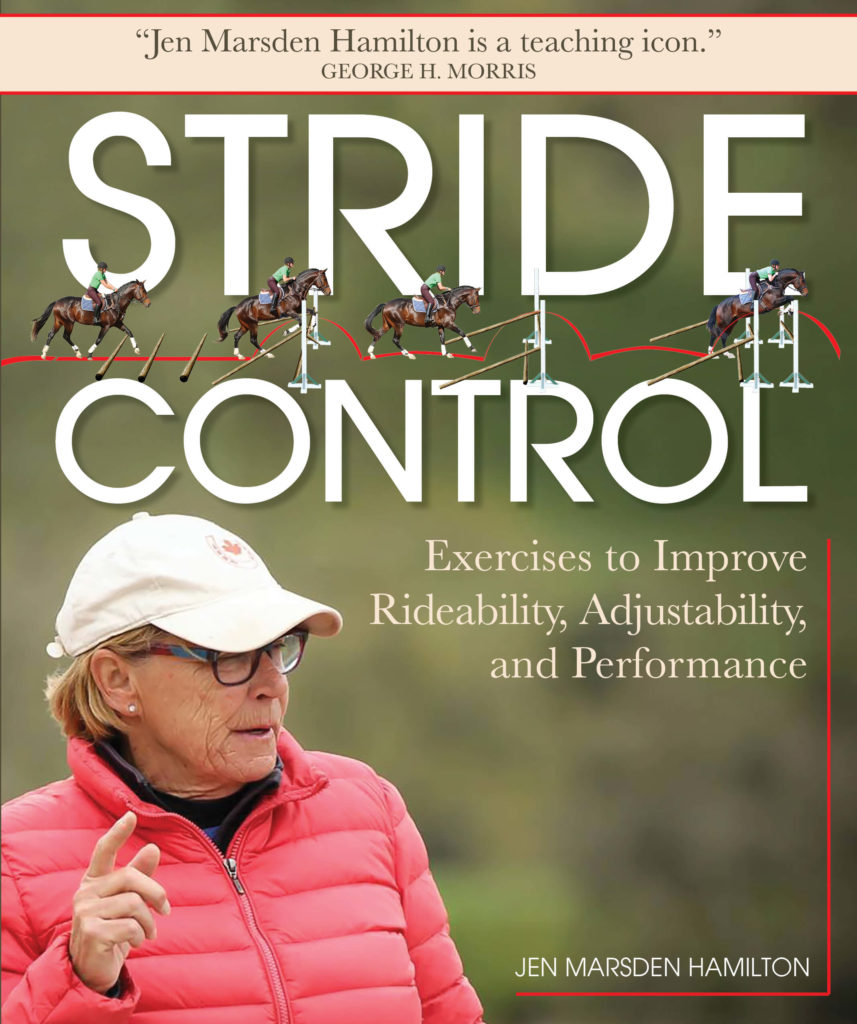This excerpt from “Stride Control” by Jen Marsden Hamilton is reprinted with permission of Trafalgar Square Books.
In this excerpt from her book Stride Control, renowned hunter-jumper coach Jen Marsden Hamilton tells us why true passion is the key to success in the saddle.
Why does riding inspire passion, perhaps more than many other sports and hobbies?
- There is a dedication threshold—once you cross it you are heavily committed by the sheer amount of time and money that is required.
- There is a unique mix of adrenalin, competitive spirit, and variety each day—new challenges due to changing weather conditions and the horse’s frame of mind.
- There is the concept of bonding with a noble creature. The trust and empathy you get from partnering with a powerful and kind animal. (Have you tried looking into the solemn brown eye of a running shoe?)
- There is the growth of technical knowledge that never ends: “The more you know, the more you realize how little you know.”
- There is the fact that every horse is an individual who can teach you something about yourself as well as your training techniques (it is difficult to say the same of a bicycle).
Passion is the link to achieving your true potential. Through sports, you can grow as a person, only if you recognize what they offer you.
 Photo by Cheleken Photography.
Photo by Cheleken Photography.
Over the last 20 years I’ve traveled to many places to teach clinics, coach at horse shows, look at horses to buy, and spectate at competitions of the highest level. I’ve been to New Zealand and Australia, Kenya, Colombia, Costa Rica, Guatemala, and Ecuador. I’ve been to Europe, India, and across the United States and Canada. I have spent hours watching horses and riders. It’s my passion.
My most interesting and memorable horse-related trip started with a phone call at three o’clock in the morning. I traveled to India to teach one very wealthy 17-year-old boy. I was to teach him to jump. It was to be a huge challenge because the first day of training the horses wouldn’t even go near a pole on the ground, much less step over it. We persisted and eventually the boy was able to jump a simple 3’ course.
Balance, rhythm, straightness, and pace were the foundation of any success we achieved. Every day we worked on basic equitation, position, and riding forward and straight. Stride control exercises between poles and jumps were practiced every day: “Do the line in five strides. Now a steady six. Now a forward four.”
Some days the boy was quite good, and other days, he was not so good. On one particular day, the boy was awful.
I said, “You have three tools to help you ride down the line properly: your eyes (and while I’m saying this I’m thinking to myself, He rides like a blind man); the feeling of the stride (I’m thinking, That one is not going to happen); and the counting of the strides—halfway down the line you should be halfway through the strides.
Are you counting the strides?” I asked.
“No!” he said. “You count them for me!”
“Yeah…” I replied, “but what happens when I’m not here?”
The boy turned in his saddle and pointed at his attendant: “My man will count for me!”
That boy just didn’t get it. That boy just didn’t have the passion. What he considered boring and of little importance, we—the passionate people—consider essential, challenging, exciting, and fun. That boy will probably never master the simple exercises, and he won’t progress.
The equestrian skill-base and attitude that can take you on lovely hacks, galloping down a beach, hunting, competing at local shows, and all the way to the Olympics, are developed from your first learning session at home. The skills and attitude you develop “here and now” are what will carry you through your life. It isn’t where you’re from that’s important. What’s important is who you are. Channel the passion that you learn at home with a strong work ethic, a belief in yourself, hours of sweat, and equestrian correctness into a positive passion, and it will lead you to success…and fun.
Pick up your copy of Stride Control: Exercises to Improve Rideability, Adjustability, and Performance here.

